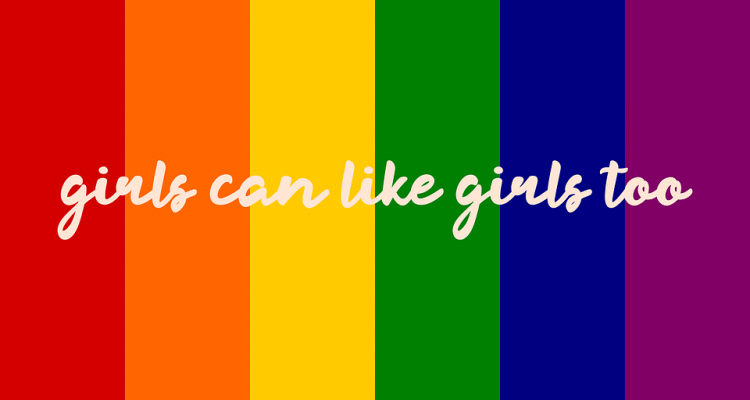When I came to Fairfield University, I knew that LGBTQ+ folks were not going to make up the majority of the population. Many LGBTQ+ students chose to study at Fairfield University because of the quality of education that it offers. Since Fairfield is a very explicitly Jesuit institution, with an all-boy preparatory school on campus, it is very easy to peg it as a conservative university. That is not to say that it isn’t, in fact, conservative; there are plenty of students at Fairfield who are so socially unaware that it’s mildly concerning, but there are also a lot of people, specifically professors, who care about inclusion and diversity on campus. There are multiple professors who are out and proud, either as members of the LGBTQ+ community or as allies. For me, at least, I find it refreshing that a Jesuit institution is dedicated to hiring faculty and staff members of different backgrounds. However, the people that students interact with the most are their peers. If someone is in a group that is not as inclusive, then they will likely share those ideologies, and some LGBTQ+ students have felt targeted by their peers.
There is hope, though. Since Fairfield University commits itself to nondiscriminatory policies (which can be argued to be ineffective, but that’s for another article), there are quite a few resources for LGBTQ+ students. Though not as well known, Fairfield University does offer services for their LGBTQ+ students. However, because they assume that the LGBTQ+ population is small, these resources are mostly kept hidden until a student does some poking around. Gender inclusive restrooms and housing, for example, are rare and must be specifically sought out by nonbinary or transgender students who need the accomodation. Counseling and Psychological Services also offers some resources for LGBTQ+ students who are struggling. The best resource for LGBTQ+ students, though, is the Gender and Sexuality Alliance.
In 1989, Fairfield’s Gender and Sexuality Alliance, otherwise known as GSA, was formed as a club for LGBTQ+ people and their allies to congregate safely and speak of their experiences at a Jesuit school, and in general. GSA has become one of the most welcoming spaces on campus, and its presence shines, despite its suppression.
Unfortunately, GSA is not consulted by Fairfield for many issues concerning the LGBTQ+ community and are not given the amount of representation and visibility that they deserve. There are multiple instances of this happening, and one of them took place this fall when the Fairfield University Student Association did not consult the GSA when they decided to celebrate LGBTQ+ history month. In the end, GSA’s Advisory Board was able to compromise with FUSA and become involved with the event, but it was still troubling that FUSA would overlook the organization that exists for LGBTQ+ people during the month celebrating that community’s history. Whether that was deliberate or not does not matter; it shows that Fairfield students are not as aware of the LGBTQ+ community’s issues and erasure as they should be.
Members of GSA have also run into a unique problem that no one had previously considered. There are currently no straight identifying members in the club. GSA is seen as more of a “gay club” (dubbed as a “coalition of homosexuals” when it first came into existence). Though it is a positive thing to have a space just for queer people, it is not productive to echo the same problems to each other forever. Paradoxically, when GSA did have straight members, some of them were noted to speak incorrectly about the queer experience and refuse critcism. Making change as a minority is extremely hard (as shown by the Black Lives Matter movement, which has been around for decades upon decades and has barely been listened to), but without the support of the majority, it is even harder.
In order for straight allies to speak upon this issue accurately, it is their responsibility to educate themselves by listening to and reading about the queer experience, without pressuring their LGBTQ+ acquaintances to provide them with every resource. By knowing that they can always learn something new, not speaking over the LGBTQ+ community and always being aware that they are not part of the community that they support, straight allies can become better advocates for, and supporters of, the LGBTQ+ community.
It is the responsibility of all allies of the LGBTQ+ community to make Fairfield a more welcoming place for people of all sexualities and genders. The LGBTQ+ community has been tirelessly fighting for their rights since modern interpretations of religions outcast them from the rest of society, and they’re far from done. The least that allies can do is actively support them. In fact, that is the bare minimum for being an ally. Allyship is not just agreeing that the LGBTQ+ community should have rights. It is actively making sure that the LGBTQ+ students at Fairfield can feel the same safety that a straight person does at this institution. Personally, I have not seen true allyship from my straight friends. Instead, I have had to tell them that they are doing just as much harm by not speaking up as the people who actively disagree with my and my LGBTQ+ friends’ existence.
Yes, it is up to the institution to make sure that rules are in place for every person to feel safe on campus, but it is the students’ responsibility to actively participate in creating that safe environment for everyone. The students make the culture. It is time for them to step up and make it a good one.


Leave a Reply